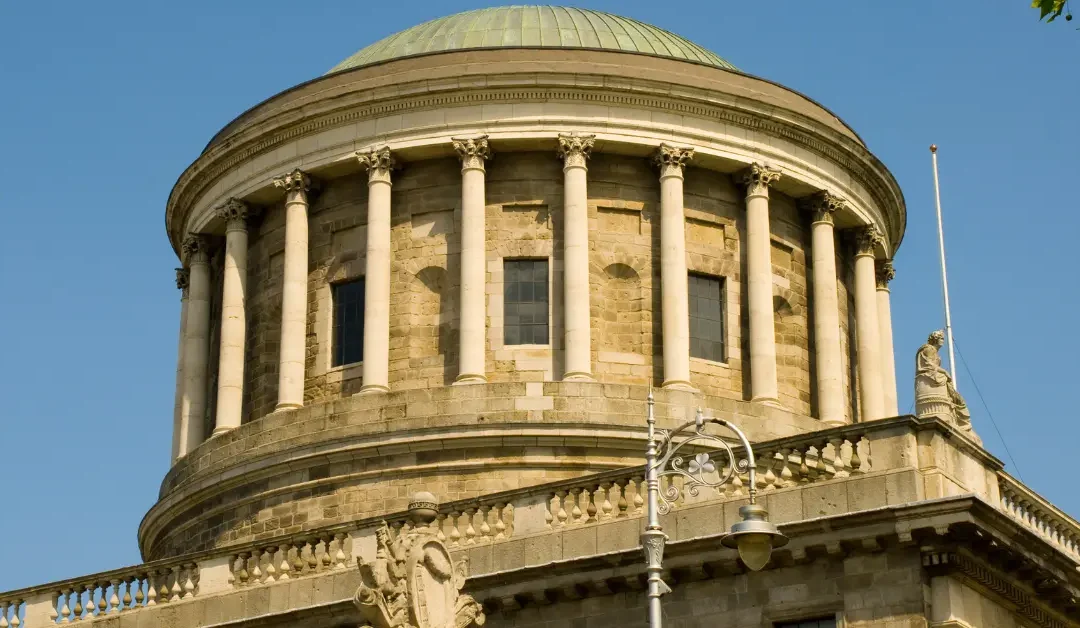The Kilkenny school sexual abuse case involving Martin O’Flaherty reveals the suffering of 29 boys, with recent court proceedings uncovering new victims after 40 years.

Photo: Irish Times
Last May, a five judge court unanimously ruled that an absolute ban on asylum seekers working in Ireland was unconstitutional ‘in principle’.
This judgement was delivered by Mr Justice Donal O’Donnell. However, it deferred making a formal declaration for six months in order for the legislature to address the situation.
In November of last year, the State looked for more time to put measures into place when the case returned before the court. However, the court said it intended to make the declaration on 9th February regardless of what progress was made by the State.
The EC Reception directive requires member states to afford the right to work in certain circumstances and in November the court was told that the Government was in the process of opting into this directive. It will roughly be mid-2018 before the directive can be implemented here. The Department of Justice has said that an implementation group is working as ‘quickly as possible’ to establish the system and how exactly it will work.
The Chief Justice, Mr Justice Frank Clarke had said that the court had ‘exceptionally’ deferred announcing an immediate declaration by announcing the provisions as unconstitutional as they recognised that there was a difficulty that needed to be addressed and that there were choices to be made. Therefore the Court afforded the State a brief period to take whatever measures it felt necessary, but were firm that a formal declaration would be made on 9th February.
The Chief Justice has now formally declared that the ban on asylum seekers working in Ireland, (set out in Section 16.3b of The International Protection Act) no longer formed part of the law and was not consistent with the Constitution.
Photo: Irish Times
However, the Government’s proposals have been met with criticism from migrant rights groups however, who have deemed the proposals as ‘too restrictive.’
Within the Government proposals, asylum seekers would be prohibited from working on 70 employment sectors, including childcare and catering and any jobs being taken up would be those not otherwise filled by an EU citizen or a person with full migration permissions in Ireland.
This week’s decision comes after over 17 years of ‘Direct Provision’ with people in centres being provided with meals and given a weekly allowance of €21.60. This system was set up only as a six-month measure. The new regulations allow asylum seekers to apply for an employment permit under the Employment Permits Act 2003. However, the normal fees and conditions will apply, meaning that applicants will have to pay between €500 to €1,000 for a six to twelve month permit (even though asylum seekers are on the weekly allowance of €21.60).
The Immigrant Council of Ireland (ICI) has said that the scheme was ‘disappointing’ and made a mockery of the original Supreme Court decision.
“As the Irish Government has not yet mapped out the criteria for access to employment when it comes into effect, we urge in the strongest terms for practical solutions which actually allow asylum seekers to seek fulfilling and effective employment.’
Supreme Court to declare asylum seeker work ban ‘unconstitutional’
‘Why not allow asylum seekers work where they want and pay taxes like everyone else?’
Supreme Court says that ban on asylum seekers working is unconstitutional

Head of Client Services
F: 1800-844-104
E: [email protected]
”At Coleman Legal, excellence in customer care is paramount. We aim to meet both prospective and existing clients’ needs professionally and in a friendly manner with a clear objective of giving quality legal advice and reaching a positive outcome.”